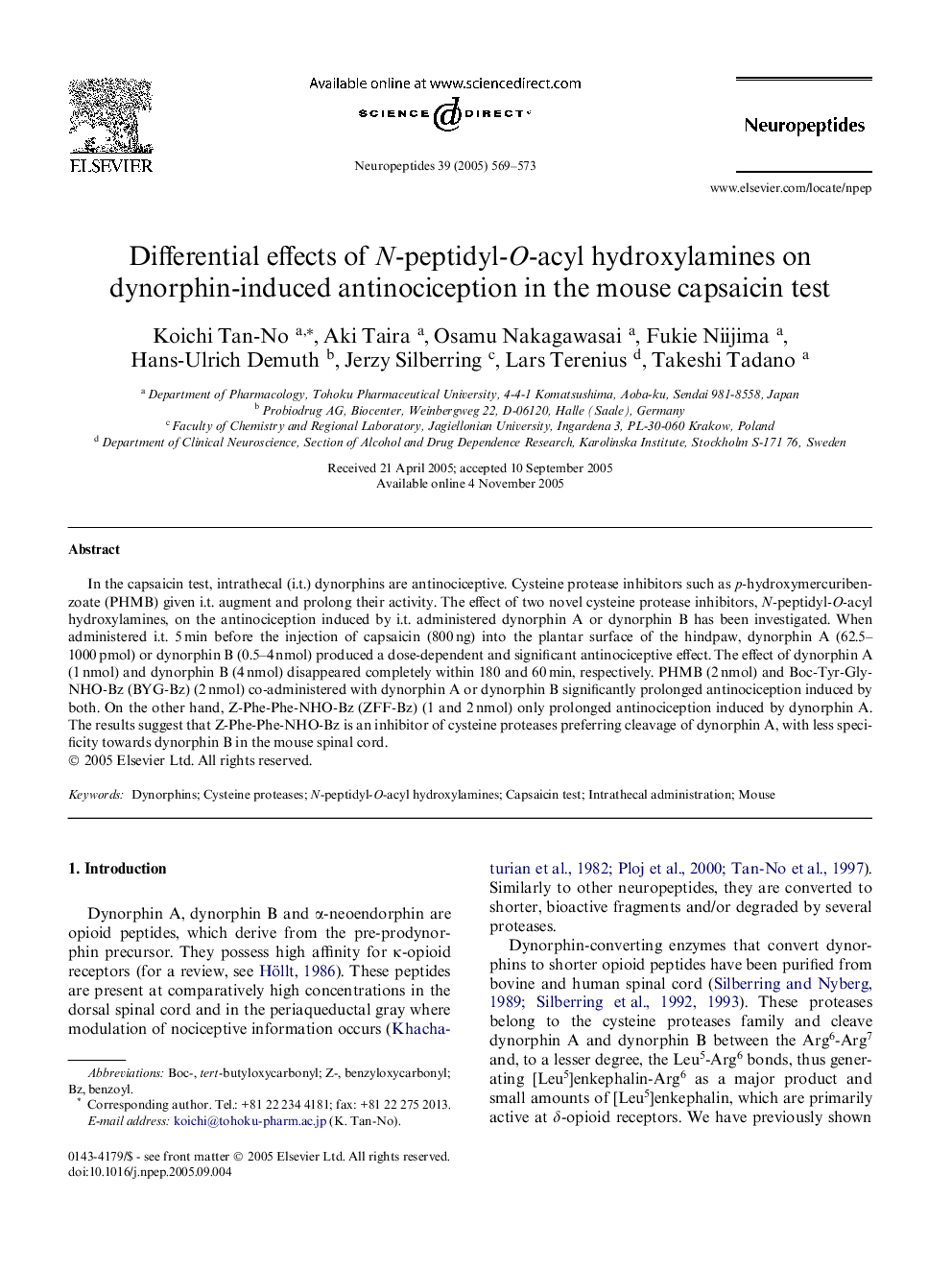| Article ID | Journal | Published Year | Pages | File Type |
|---|---|---|---|---|
| 9118945 | Neuropeptides | 2005 | 5 Pages |
Abstract
In the capsaicin test, intrathecal (i.t.) dynorphins are antinociceptive. Cysteine protease inhibitors such as p-hydroxymercuribenzoate (PHMB) given i.t. augment and prolong their activity. The effect of two novel cysteine protease inhibitors, N-peptidyl-O-acyl hydroxylamines, on the antinociception induced by i.t. administered dynorphin A or dynorphin B has been investigated. When administered i.t. 5Â min before the injection of capsaicin (800Â ng) into the plantar surface of the hindpaw, dynorphin A (62.5-1000Â pmol) or dynorphin B (0.5-4Â nmol) produced a dose-dependent and significant antinociceptive effect. The effect of dynorphin A (1Â nmol) and dynorphin B (4Â nmol) disappeared completely within 180 and 60Â min, respectively. PHMB (2Â nmol) and Boc-Tyr-Gly-NHO-Bz (BYG-Bz) (2Â nmol) co-administered with dynorphin A or dynorphin B significantly prolonged antinociception induced by both. On the other hand, Z-Phe-Phe-NHO-Bz (ZFF-Bz) (1 and 2Â nmol) only prolonged antinociception induced by dynorphin A. The results suggest that Z-Phe-Phe-NHO-Bz is an inhibitor of cysteine proteases preferring cleavage of dynorphin A, with less specificity towards dynorphin B in the mouse spinal cord.
Keywords
Related Topics
Life Sciences
Biochemistry, Genetics and Molecular Biology
Endocrinology
Authors
Koichi Tan-No, Aki Taira, Osamu Nakagawasai, Fukie Niijima, Hans-Ulrich Demuth, Jerzy Silberring, Lars Terenius, Takeshi Tadano,
